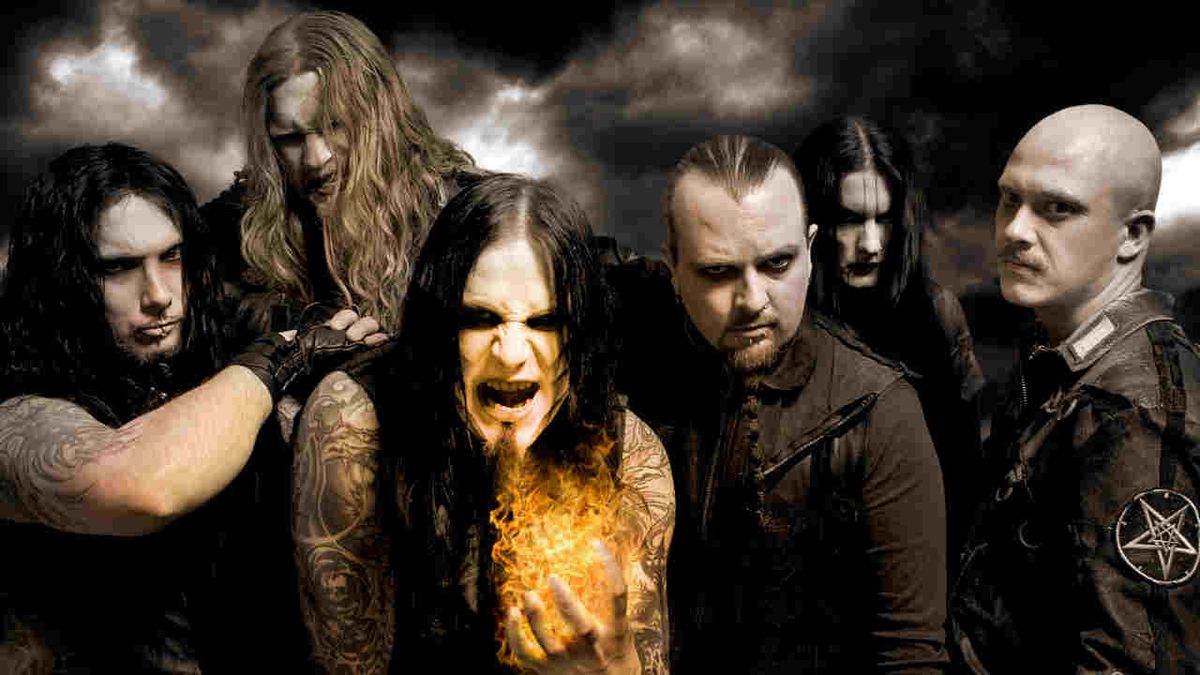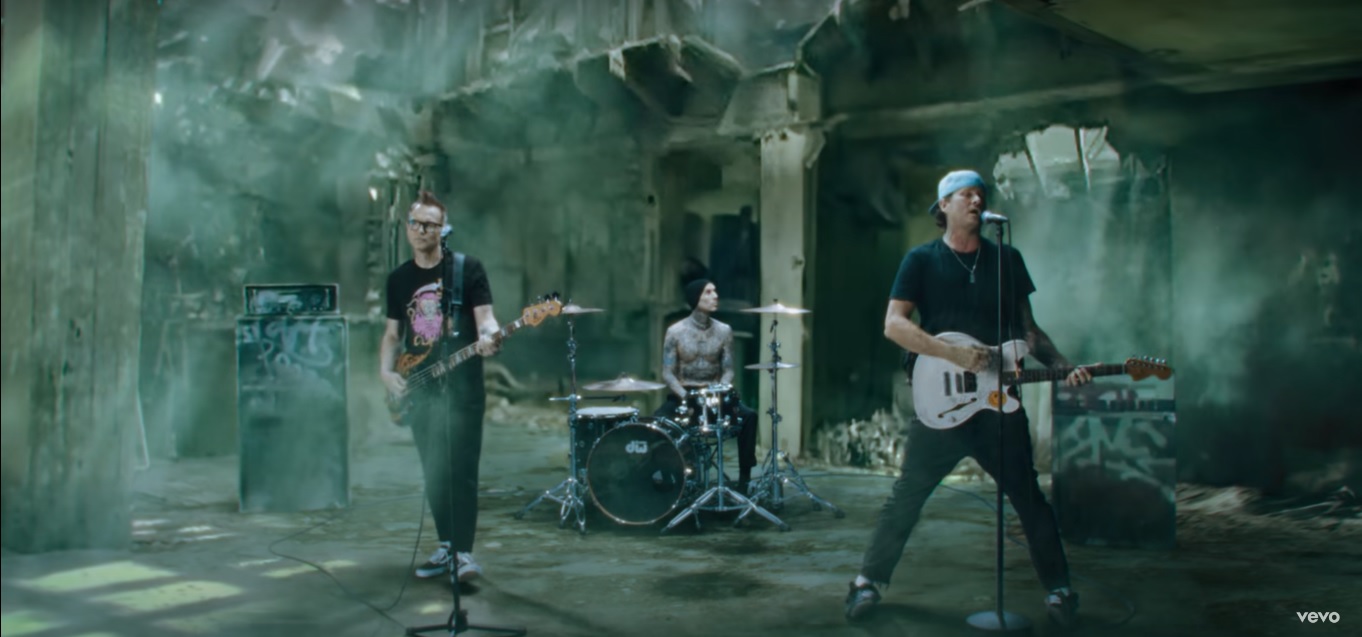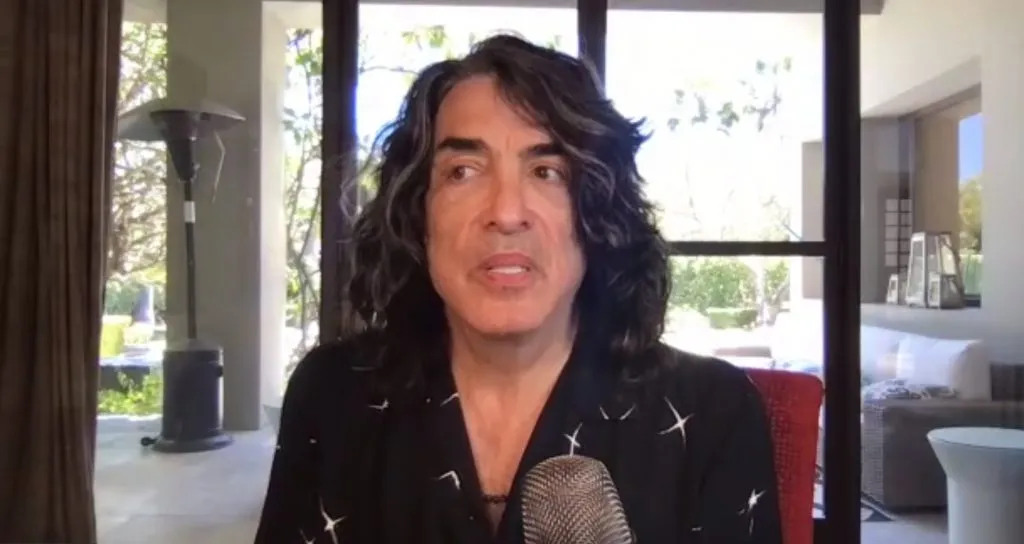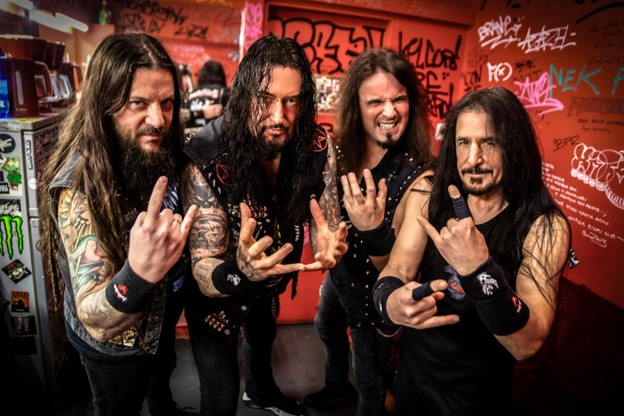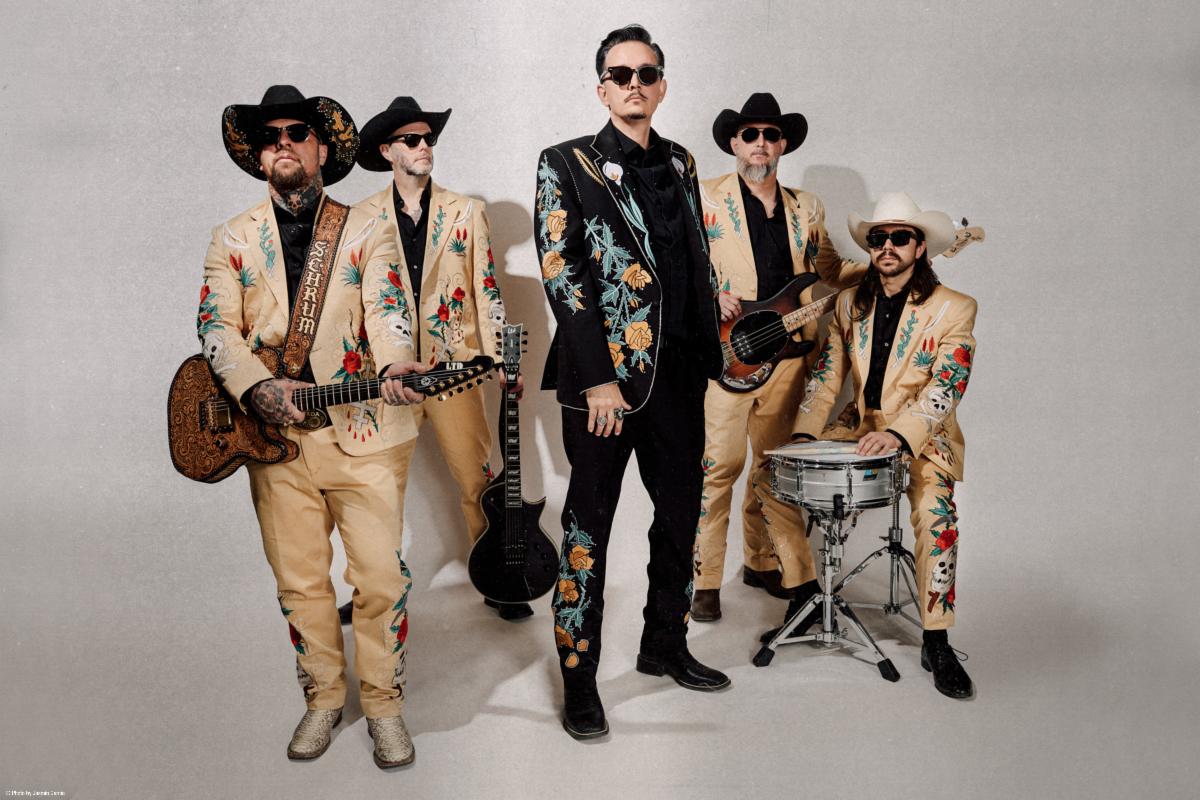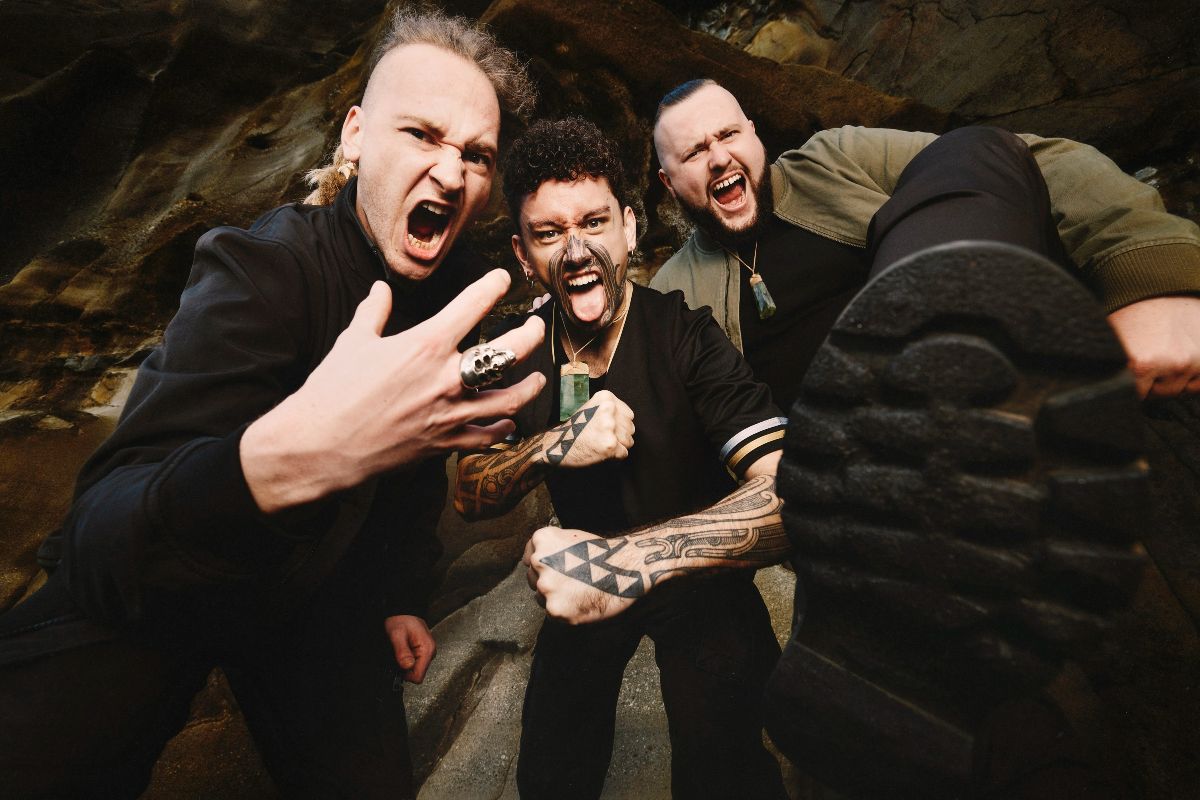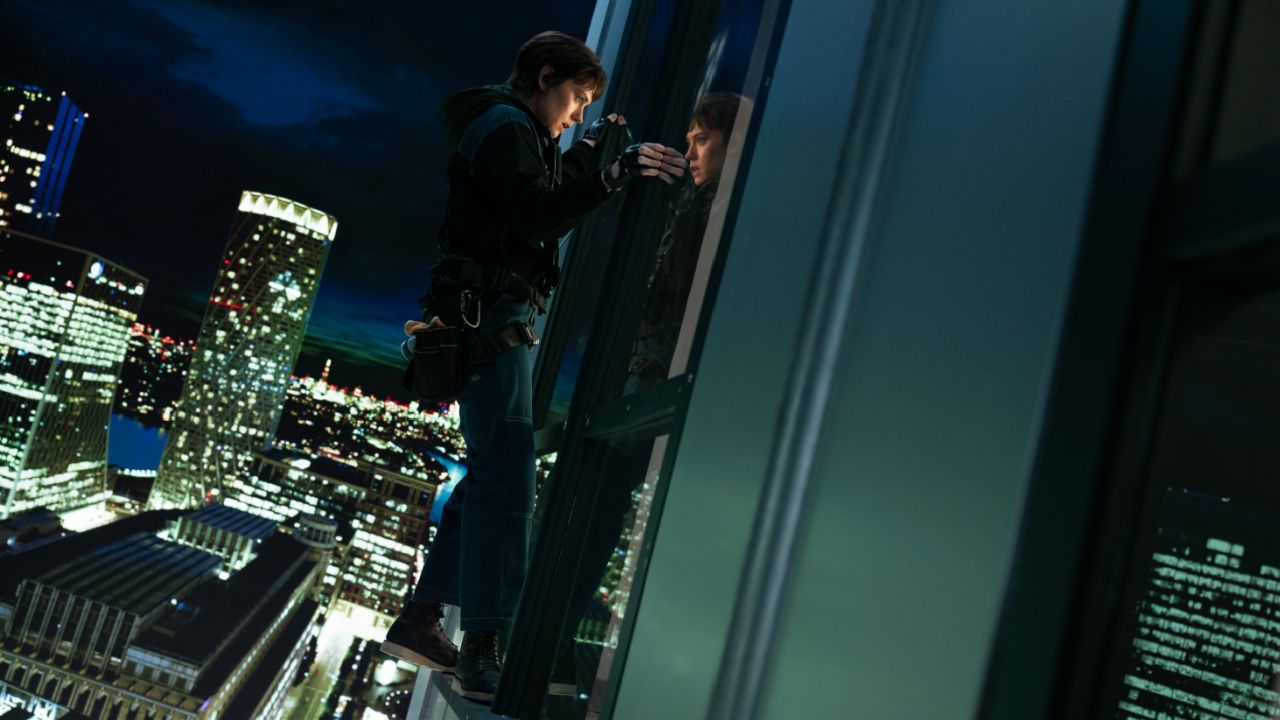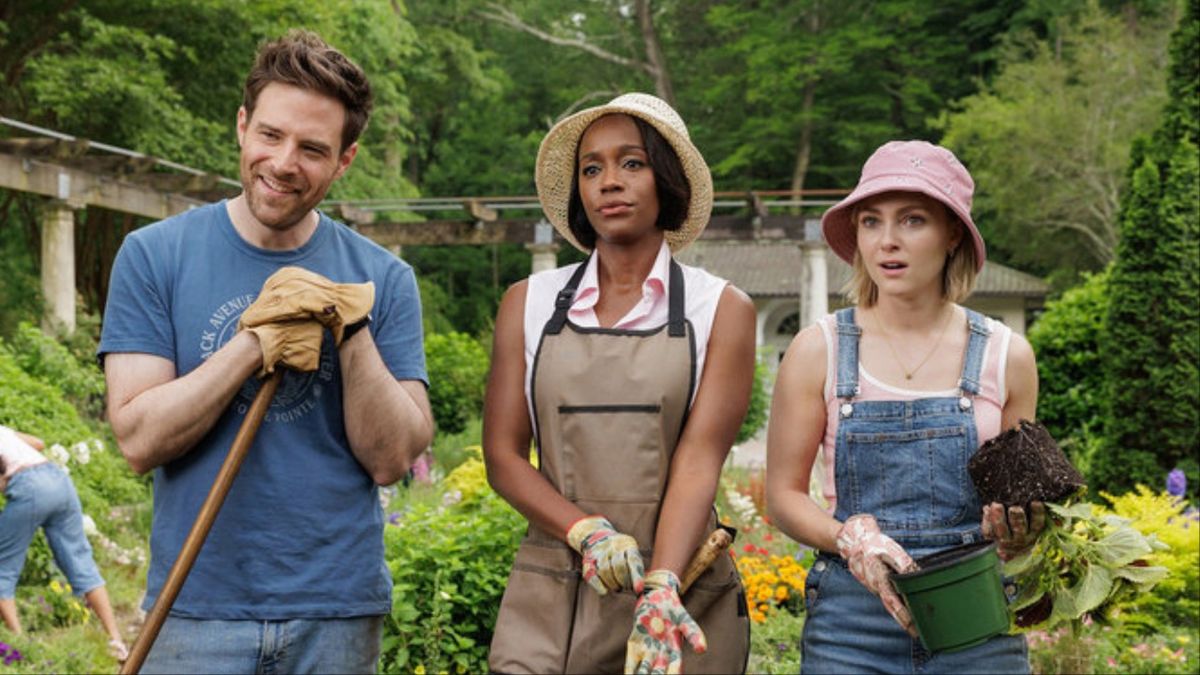
David J (Bauhaus, Love And Rockets) and Victor DeLorenzo (Violent Femmes) may be the marquee talent behind Night Crickets, but their secret weapon is San Francisco-born multi-instrumentalist Darwin Meiners. J’s close friend and manager, Meiners initially reached out to DeLorenzo via email, finally meeting the Femmes drummer in person after a set at Coachella. Since then, a number of collaborations have ensued with J in the fold, including Night Crickets’ 2022 debut, A Free Society, and the new How It Ends (?), out tomorrow on Label 51 Recordings.
All three Night Crickets members walk us through the songs on How It Ends (?) for MAGNET’s exclusive full-album premiere.
1) “Red Mist White Knuckles”
J: “This addresses the all-too-familiar, tightly wound emotional state that’s an unwanted but entirely natural reaction to living in such a pressured modern society. This funky track has a taut, sinewy groove apropos to the subject matter, and the lyrics are laced with a certain sly, self-depreciating, dark humor.”
2) “The Story Of War”
J: “I was laid up in bed with a nasty case of COVID when I came up with the lyrics. I had a high fever and was pretty delirious as I spoke the lines—which concerned the awful war in the Ukraine—into my phone. I wrote them off the top of my head, pressing ‘pause,’ thinking of the next line, pressing ‘record’ and so on until I had the full thing. Though it wasn’t my intention to use this recording as the actual vocal track, that’s what happened in the end. My voice has a deep, gravely timbre due to the illness. At times, you can hear me sucking on a throat lozenge.”
3) “Should Be Heaven”
J: “This one was sparked by a Zoom call the three of us were on. I was talking about adding a bass line to the track, which was only instrumental at the time. Victor said, ‘Great! It should be heaven.’ I immediately heard that as a song title—and as soon as we came off the call, I wrote the lyrics. The track has a strong Love And Rockets flavor. It speaks of the frustration with the way things are in the world and the hope for what they could—and should—be.”
4) “Don’t Be Afraid”
J: “This started life during some downtime in a studio in Mexicali, where I was working on another project. I was playing around with this little idea on my nylon-string guitar, and percussionist Francisco Aburto started to tap along on a high-hat. It sounded good, so I decided to record it on my phone. When I got back to L.A., I overdubbed some fuzz bass using my Acapulco Gold device handmade by Earthquake in Akron, Ohio. (There are only five in existence.) The wacky solo that enters at 1:44 is the bass played through this little box. Victor added floor tom and brushed snare drum. Our long-distance pal, Chris Vibberts, added mandolin and melodica over in Porto, Portugal, and the brilliant Jason Lytle from Grandaddy chimed in on piano, synth and backing vocals. Darwin and Victor also sang back-up. Written on the spot in Darwin’s garage studio, the lyrics again concern the zeitgeist in these troubled times.”
5) “Where’s The One?”
DeLorenzo: “I had no melody or structure in mind when I tracked the drums. My vocal was recorded in an automatic writing/singing style. I improvised the lyric and singing in a freehand way, with no thought about content or pitch before I pushed the ‘record’ button. The horns are wonderful and remind me of the first Blood, Sweat & Tears album, which featured Al Kooper. There’s also a humble nod to Captain Beefheart with the lyric, ‘A big, bright baby-blue moon.’”
6) “Like An Avalanche”
Meiners: “This track emerged from the concept of exploring the final thoughts that flood one’s mind in the moments before death. I started by compiling a list of fleeting reflections and vivid memories reported by those who’ve had near-death experiences. With this thematic foundation in mind, I also wanted to incorporate a heavier, guitar-driven piece into the album. I presented the guitar and vocal parts to the group, merging the raw intensity of the music with the poignant nature of the theme.”
7) “I Am Dead”
J: “This is basically a transcript of a very weird dream I had a couple nights before the session. The strange, labored vocal came about when I was testing out the mic. There was this extreme delay where I’d hear myself a couple of seconds after talking, which made it very difficult to enunciate. It struck me that this effect would be most apropos for the track, so we did a take like that. Then, without hearing what I’d just recorded, we did another one without the effect. We then played them back simultaneously. The eerie voices at the end are from a radio station in Russia that only plays monks chanting.”
8) “What Is This Love?”
DeLorenzo: “It’s a simple question with a million answers. There’s a beautiful violin arrangement by my daughter, Peri, and a deep and supportive bass part from dear David. I love the haunting sound that really shapes the atmosphere of the piece.”
9) “Sunflowers And Starlight”
Meiners: “This song is a tribute to the late (audio engineer) John Neff, a remarkable man whose story inspired the name of our band. John shared with David his experience of working with David Lynch on the film Mulholland Drive, which led to us adopting the name Night Crickets. I’d recently been in touch with John as he retired from his recording studio and moved to Portland. We’d discussed his contribution to a song idea of ours. Sadly, he passed away just before he could start. His final post, ‘Still snow on the ground, and now it’s raining,’ seemed a great way to remember him. This is our way of honoring John’s memory and the impact he had on our journey—and many others—through his work. His influence and spirit will always be with us.”
10) “The World I See Is Not The World I Want”
DeLorenzo: “I started this piece with a drum-machine pattern and a keyboard pad. It’s hard to follow the world on computers and phones because the information—true and fake—is mind-numbing and frequently brutal. David had written a biting text about specific world events, but I asked him to let me develop the idea without tethering it to a certain time in history. He obliged, and his vocal begins the piece. Willem Dafoe—whom I worked with in a theater company in Milwaukee—is the featured guest vocal on the track. David and Darwin also lend their voices to the ghostly opera.”





